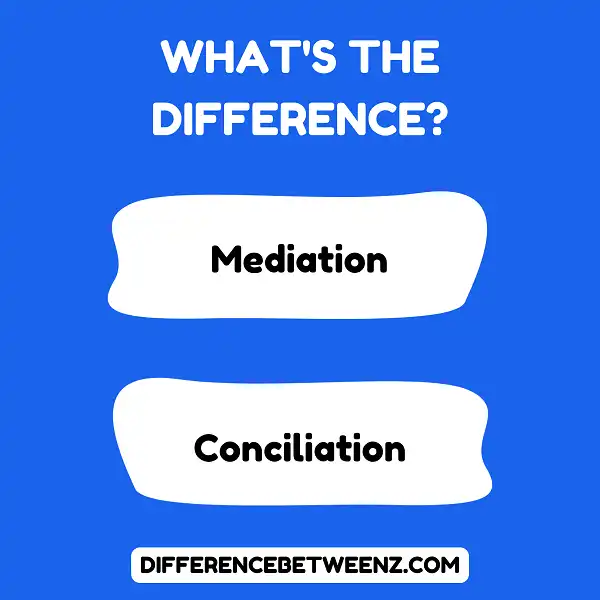When couples decide to end their relationship, one option for handling the divorce is mediation. Conciliation is another option, which is usually less formal and can be used in some family law cases. This article will explore the key differences between mediation and conciliation.
What is Mediation?
- Mediation is an alternative dispute resolution which allows parties to find solutions to conflicts with the help of a neutral third-party. Mediation can be used for almost any context, such as family, employment and business disputes.
- This form of negotiation encourages dialogue between the two sides and allows each party to open up in a comfortable and non-threatening environment.
- Mediators act as referees who encourage both sides to talk and attempt to reach mutually beneficial agreements and solutions. Mediation significantly reduces the time, legal fees and stress that often occur when pursuing litigations, thus making it increasingly popular for dispute resolution.
What is Conciliation?
Conciliation is a form of alternative dispute resolution. It is used as an alternative to litigation when two or more parties are attempting to come to an agreement on some issue and are seeking a third-party mediator to help them reach a mutually beneficial outcome.
- Conciliators usually use creative problem solving techniques to develop strategies that each party can be satisfied with, and in some cases, the parties may even end up with a better outcome than they initially expected.
- Conciliation offers several advantages over court proceedings, including its cost-effectiveness, speed of resolution, collaborative nature, and personalized dispute resolution process.
- Conciliation can be used in many different contexts including employment disputes, family law matters, and neighbourhood conflicts. While it’s not appropriate for all disputes, it is an invaluable tool that can resolve conflicts efficiently and peacefully.
Difference between Mediation and Conciliation
- Mediation and Conciliation are often used interchangeably, however they are in fact different processes. Mediation is a dispute resolution process in which a neutral third party mediator assists the parties to work together to identify issues, explore solutions and assist them in reaching an agreement.
- Mediators do not have any power to make decisions or impose agreements on the parties. On the other hand, conciliation is also a form of dispute resolution however it leaves more decision making power with the conciliator than that of the mediator.
- Conciliators can advise on options, help to facilitate negotiations and make recommendations but have no power to impose settlements on either party. Mediation and conciliation can both be valuable ways to resolve disputes by guiding parties towards mutually beneficial agreements that they can live with independently.
Conclusion
Mediation and conciliation are both methods of conflict resolution, but there are some key differences. Conciliation is a voluntary process in which the parties come to an agreement with the help of a neutral third party. Mediation, on the other hand, is often mandatory and involves a mediator who helps the parties negotiate an agreement. If you’re considering using one of these methods to resolve a conflict, it’s important to understand the differences between them so you can choose the right approach for your situation.


